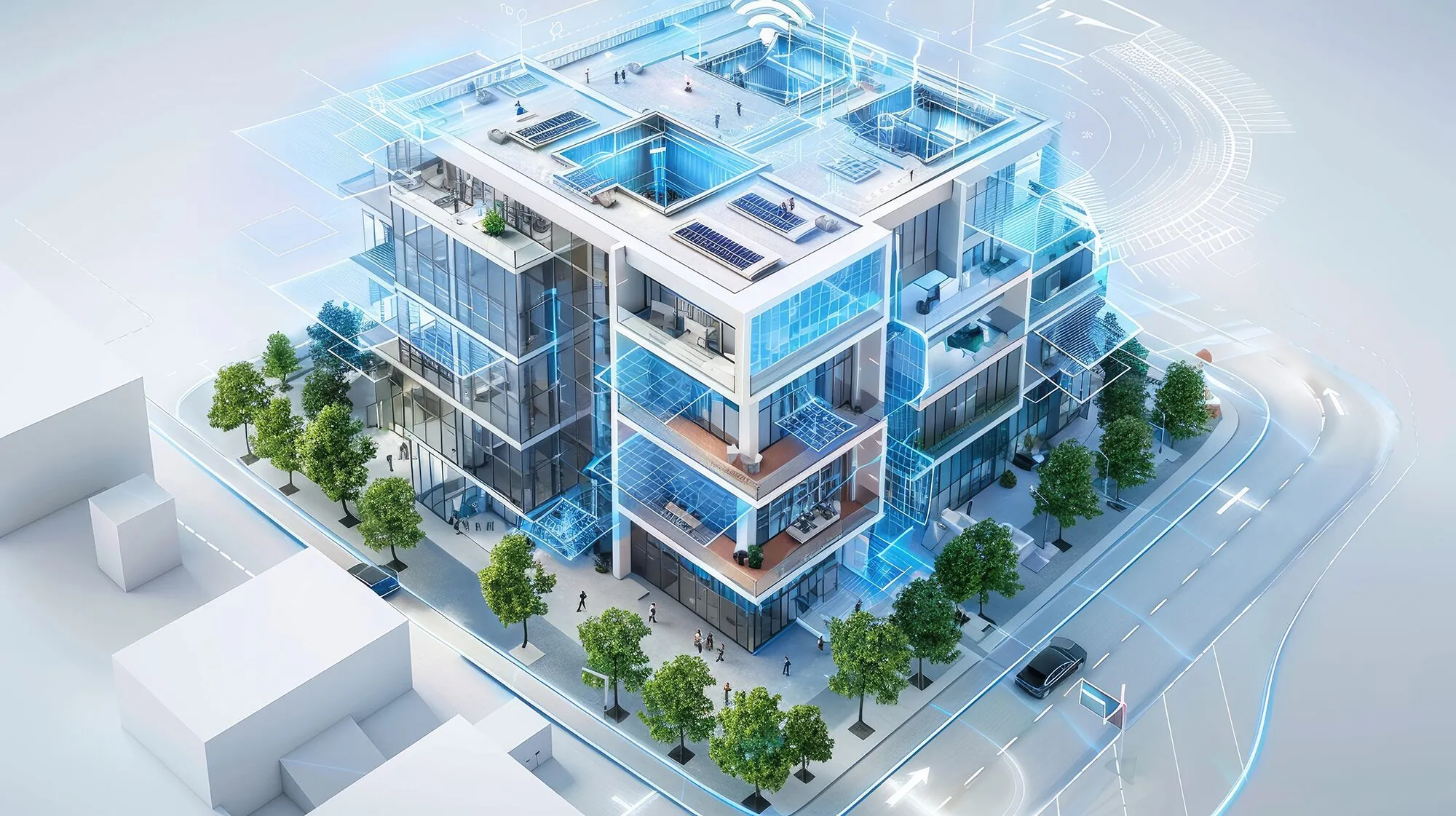Technology is reshaping every part of our lives, from how we work to how we live—and now, how we manage our buildings. Smart building services are revolutionizing facility operations, turning ordinary spaces into intelligent, responsive environments. For businesses and property managers, these solutions offer more than just convenience—they provide efficiency, sustainability, and the ability to make data-driven decisions that enhance performance and reduce costs.
What Are Smart Building Services?
Smart building services refer to the integration of advanced technologies—such as the Internet of Things (IoT), artificial intelligence (AI), and automation—into the operation and management of buildings. These services create a network of connected devices and systems that communicate with each other, enabling buildings to “think” and respond proactively.
From automated lighting that adjusts based on occupancy to predictive maintenance systems that identify issues before they cause downtime, smart building services streamline operations while improving comfort and safety for occupants.
How Smart Building Services Work
The magic behind smart building services lies in their ability to collect, analyze, and act on data in real time. Here’s a simple breakdown:
- Data Collection – IoT sensors capture information on temperature, air quality, energy usage, equipment performance, and more.
- Analysis – AI-powered systems process the data, identifying patterns and predicting potential issues.
- Automation – Systems automatically adjust operations, from dimming lights to adjusting HVAC settings or triggering maintenance alerts.
- Optimization – Over time, the building learns from historical data, fine-tuning its performance for maximum efficiency.
By integrating with existing infrastructure, smart building services can be deployed without the need for a complete system overhaul, making them accessible for both new and older buildings.
Key Features of Modern Smart Building Services
Smart building technology has evolved beyond basic automation. Today’s solutions offer a range of advanced features that deliver real, measurable benefits:
Smart Energy Management Systems (Smart EMS): A Smart EMS optimizes power usage by analyzing consumption patterns and identifying opportunities for energy savings. Advanced platforms, like those integrated with HyESys technology, can even manage renewable energy sources and shift consumption to off-peak hours for cost efficiency.
IoT-Enabled Maintenance & Asset Tracking: Sensors continuously monitor equipment performance, allowing predictive maintenance before breakdowns occur. This reduces repair costs and prevents disruptions.
AI Surveillance & Security Enhancements: AI-powered cameras and security systems detect anomalies in real time, triggering instant alerts for faster response and a safer environment.
Environmental Monitoring: Smart sensors track air quality, humidity, and temperature to ensure optimal conditions for health, comfort, and productivity.
Interactive Dashboards: Facility managers can access centralized dashboards showing live building data, helping them make informed decisions instantly.
Benefits of Implementing Smart Building Services
The adoption of smart building services delivers a range of advantages for organizations of all sizes and industries:
Cost Savings; Automation and data-driven insights help identify inefficiencies, reducing unnecessary energy usage and lowering operational expenses.
Sustainability: By optimizing energy consumption and integrating renewable sources, smart building services support eco-friendly practices and help businesses meet sustainability goals.
Occupant Comfort & Productivity: Smart climate control, lighting, and air quality systems create a more comfortable environment, boosting employee well-being and performance.
Predictive Maintenance: Early detection of equipment issues prevents costly downtime and extends the lifespan of assets.
Informed Decision-Making: Real-time insights empower facility managers to act quickly and strategically, improving overall building performance.
Smart Building Services in ActionSmart building services are versatile, making them applicable across multiple industries:
- Corporate Offices – Enhance employee productivity with optimal lighting, climate, and space utilization.
- Hotels & Hospitality – Personalize guest experiences with smart room controls and seamless service automation.
- Healthcare Facilities – Maintain critical air quality and security standards while optimizing operational efficiency.
- Industrial Plants – Monitor and manage large-scale equipment for safety, performance, and energy efficiency.
- Retail Environments – Use smart lighting, climate control, and analytics to improve customer experience and reduce costs.
The Role of IoT in Smart Building Services
The Internet of Things is the backbone of modern smart building services. IoT devices act as the eyes and ears of the building, collecting and sharing data in real time.
Examples include:
- Smart Lighting – Adjusts automatically based on occupancy or natural light levels.
- HVAC Optimization – Balances comfort and efficiency by adjusting airflow and temperature dynamically.
- Automated Plumbing – Detects leaks and regulates water usage for conservation.
By enabling seamless communication between different systems, IoT ensures that every part of the building works together in harmony.
How to Choose the Right Smart Building Service Provider
Not all smart building services are created equal. To choose the right provider, consider:
- Integration Capabilities – Ensure the solution can work with your existing systems without costly replacements.
- Scalability – Look for services that can grow with your business needs.
- Security Features – Prioritize providers that protect your data and network from cyber threats.
- Sustainability Commitment – Select a partner with eco-conscious solutions and a proven track record in energy optimization.
- Customization – Your building is unique—choose a provider that tailors solutions to your specific requirements.
For example, companies like Advancer Smart Technology (AST) specialize in personalized smart building services, ensuring seamless integration, optimized performance, and long-term sustainability.
Future Trends in Smart Building Services
The future of smart building services is full of exciting possibilities:
- AI-Driven Automation – Systems that learn and self-adjust without human intervention.
- Integration with Renewable Energy – Increased use of solar, wind, and battery storage solutions.
- Edge Computing – Faster data processing at the source for real-time decision-making.
- Occupant Personalization – Buildings that adjust to individual preferences for lighting, climate, and workspace.
These trends will continue to push buildings toward becoming more autonomous, sustainable, and user-centric.
Takeaway
Smart building services are no longer a futuristic concept—they are an essential part of modern facility management. By combining IoT, AI, and automation, these solutions enable businesses to operate more efficiently, sustainably, and profitably.
Whether you’re managing a corporate office, hotel, hospital, or industrial facility, adopting smart building services can unlock significant cost savings, enhance occupant satisfaction, and position your business for future success. The key lies in partnering with the right provider—one that understands your needs and delivers customized, future-ready solutions.







